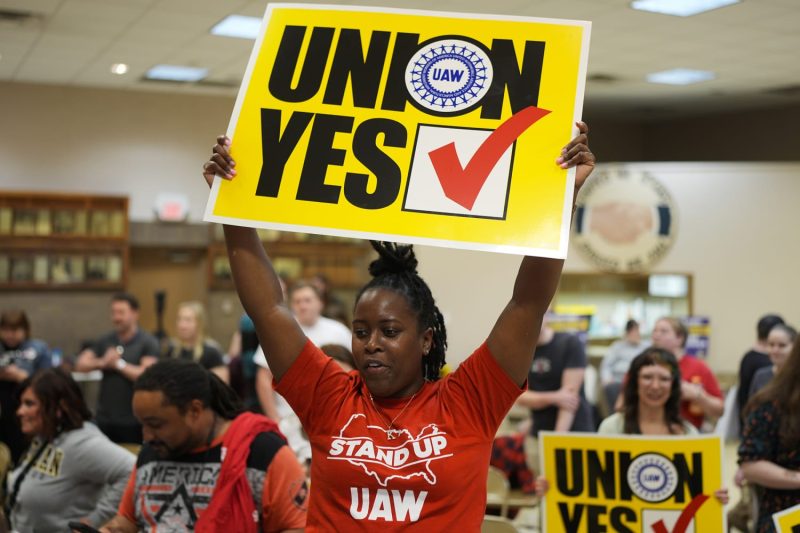The ongoing labor negotiations between the United Auto Workers (UAW) and the Mercedes-Benz Plant in Alabama have drawn significant attention, as the UAW seeks to secure a victory for autoworkers in the U.S. South. The UAW’s efforts at unionizing and advocating for better working conditions in the auto industry, particularly in Southern states, have long been met with resistance from employers and state policies that are less favorable to unions. However, the current push at the Mercedes plant in Alabama represents a strategic move by the UAW to establish a foothold and expand its influence in this region.
One of the key challenges faced by the UAW in its drive to unionize the Mercedes plant is the opposition from the management and anti-union sentiments among some employees. The management at Mercedes has expressed concerns about the potential impact of unionization on the plant’s competitiveness and flexibility, highlighting the tensions between labor and management interests in the auto industry. Additionally, some workers at the plant remain skeptical about the benefits of joining a union, citing fears of job security and potential disruptions to their workplace dynamics.
In response to these challenges, the UAW has ramped up its efforts to build support among workers at the Mercedes plant through grassroots organizing, outreach campaigns, and advocacy for better wages and working conditions. By highlighting the successes of unionized autoworkers in other plants and emphasizing the collective bargaining power that unions provide, the UAW aims to persuade more employees to join its ranks and participate in the unionization drive.
Moreover, the UAW has also engaged in legal and political strategies to counteract the resistance from the management and create a more favorable environment for unionization. By leveraging its connections with lawmakers, community organizations, and labor allies, the UAW has sought to pressure Mercedes and state authorities to respect workers’ rights to organize and negotiate collectively. These efforts underscore the broader implications of the unionization campaign at the Mercedes plant, extending beyond the immediate workplace dynamics to the broader socio-political landscape in the U.S. South.
As the negotiations between the UAW and Mercedes continue, the outcome of this battle will have far-reaching consequences for autoworkers, labor relations, and the future of unionization efforts in the U.S. South. The UAW’s quest for a tough victory at the Mercedes plant symbolizes a larger struggle for workers’ rights, economic equity, and social justice in an industry that is central to the American economy. By navigating the complexities of labor-management dynamics, legal frameworks, and social perceptions, the UAW’s campaign at the Mercedes plant exemplifies the resilience and determination of workers to secure a better future for themselves and their communities.
